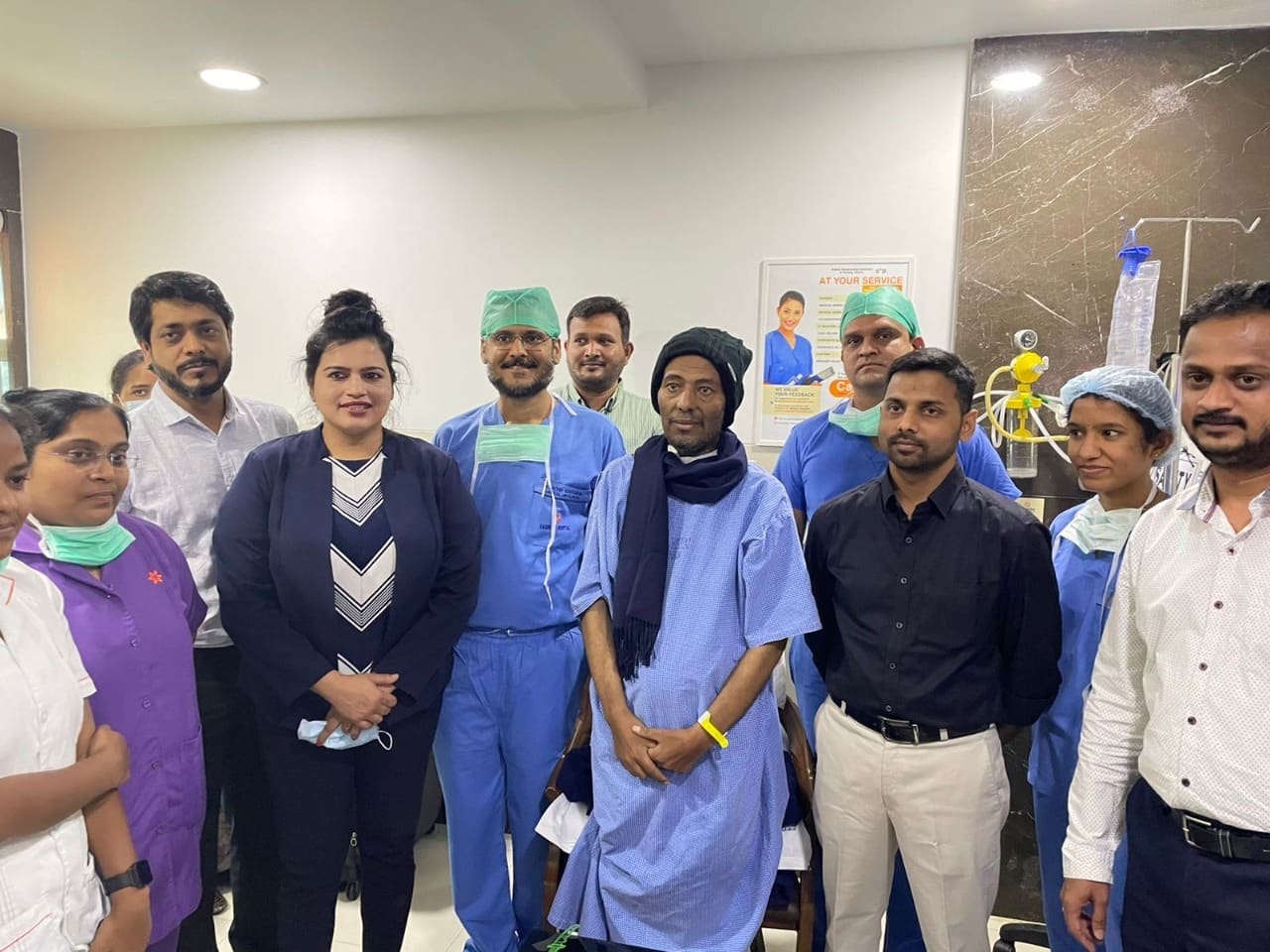Get to know more about laryngectomy – Ludciged, Deputy Mayor of Ethiopia, who was diagnosed with advanced throat cancer underwent three major surgeries in Hyderabad, India.
Cancer can be cured if it is detected early, treated correctly, and given a lot of emotional support. The Deputy Mayor of Addis Abeba (Ethiopia) is living proof of this. Ludciged has survived advanced laryngeal cancer (cancer of the larynx or voice box) following three major surgeries in Hyderabad, India.
Ludciged was diagnosed with advanced throat cancer and was admitted to Hyderabad’s Yashoda Hospitals for further treatment. Ludciged began experiencing unusual and persistent coughing four months ago, according to the hospital. His condition was critical; he couldn’t speak, was gasping for air, and couldn’t walk properly.
Surgical Oncologists at Yashoda Hospitals recommended laryngectomy, a surgical procedure in which the larynx is completely removed, and the airway is blocked.
Get to know more about laryngectomy
Dr. Sachin Marda, Sr. Consultant Oncologist & Robotic Surgeon (Cancer Specialist) noted that diagnosis and finding the right treatment are always more critical and time-consuming than the treatment itself.
He stated, “Mr.Ludciged was diagnosed with advanced laryngeal cancer. Despite chemotherapy and radiation, the patient received in Ethiopia, cancer returned, and he went to Yashoda Hospital for more advanced treatment.”
Talking about the unconventional treatment procedure, Dr. Marda said, “We consecutively started Mr. Ludciged’s treatment with total Laryngectomy Flap Reconstruction and Provox Prosthesis which is advanced Voice Rehabilitation. When we removed the larynx patient could not communicate. So, we implemented artificial prostheses in the place of the larynx through which the patient could speak.”
Possible complications post-surgery
Unfortunately, Ludciged developed massive cardiac pulmonary thromboembolism during the postoperative period. “Our cardiac team stepped in and saved his life in this critical situation,” said Dr. Marda.
The patient also developed an infection and necrosis because of the previous chemotherapy and radiation. The doctor’s team had to plan flap surgery to cure the infection.
“So, we saved him from three near-death experiences. Mr. Ludciged triumphed after the planned advanced surgery, with regular follow-up and a lot of perseverance,” added Dr. Marda.
Speaking about the post-op complication, Dr. Rohith P Reddy, Consultant Interventional Cardiologist, Yashoda Hospitals, said, “Mr. Ludciged, a case of ca larynx post-surgery, developed tachycardia during the post-op period. The ECG revealed sinus tachycardia, and the echo was normal. A CT pulmonary angiography revealed that the patient had pulmonary thromboembolism.”
“He was started on low molecular weight anticoagulation because he was hemodynamically stable. Heparin was continued for 4 weeks with minimal interruption during fistula closure surgery, and a repeat CT before discharge revealed significant thrombus resolution. Because this was a case of provoked PTE, he was supposed to be anti-coagulated for 3 to 6 months before being reassessed,” Dr. Reddy added.
Laryngeal cancer: Risk factors and symptoms
Smoking or using other tobacco products can increase your risk of developing laryngeal cancer. Excessive alcohol consumption can also put you at greater risk of such cancer. The combination of alcohol and tobacco increases the risk even more. Other risk factors for laryngeal cancer include:
- Age: It happens more in people aged 55 and older.
- Gender: Men are more likely to develop this cancer.
- History of head and neck cancer: About 25 per cent of people who have had head and neck cancer get it.
- Job: Exposure to certain substances such as sulfuric acid mist, wood dust, nickel, asbestos or manufacturing mustard gas at work may increase the risk of laryngeal cancer.
Some forms of HPV (human papillomavirus), a sexually transmitted disease, are also linked to laryngeal cancer.
Voice changes, such as hoarseness that doesn’t improve after two weeks, a sore throat or cough that doesn’t go away, pain when you swallow, lump in the neck or throat, trouble making voice sounds (dysphonia), trouble breathing (dyspnea), ear pain are symptoms of laryngeal cancer. Often, these symptoms are mistaken for other conditions. If you experience these symptoms, see a doctor for an accurate diagnosis.








